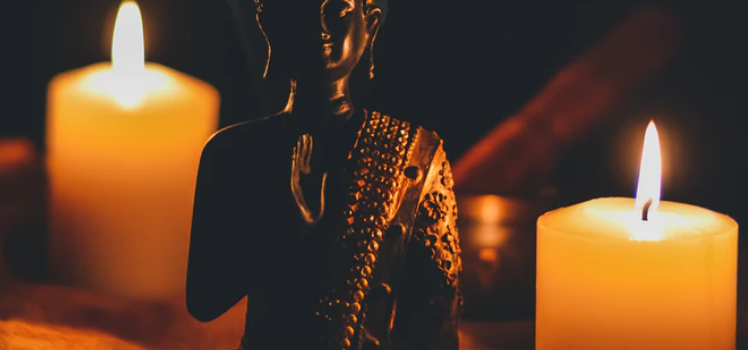

This article is an excerpt from the Shortform book guide to "The Bhagavad Gita" by Eknath Easwaran. Shortform has the world's best summaries and analyses of books you should be reading.
Like this article? Sign up for a free trial here .
Who is Krishna in The Bhagavad Gita? How does Krishna explain the true nature of God?
Krishna in The Bhagavad Gita is a God who reveals his true self—not the physical form we know of Krishna, but the being that embodies all existence. Scholars consider this section to be one of the most important parts of The Bhagavad Gita.
Read more about Krishna in The Bhagavad Gita, his true form, and what it means.
Krishna in The Bhagavad Gita: Know and Love God
In these chapters, Krishna in The Bhagavad Gita reiterates that he is the source of all things and present in all things, both physical and metaphysical. He goes further to say that he is the true form of the greatest gods in every pantheon worshipped by man. He expounds on how he is the highest mountain, the deepest valley, the mightiest lion; he is the true self inside every person; he is life, death, time, victory, honor, justice, and so on.
Religious scholars consider Chapter 11 to be the most important part of The Bhagavad Gita. In this chapter, Krishna in The Bhagavad Gita reveals his true self to Arjuna—not the four-armed, blue-skinned being who commonly appears in art, but his real form: the beginning and end of all existence.
Following that great revelation, Chapter 12 focuses on the importance of not just devotion, but love, as the supreme motivator for spirituality. It’s not enough to simply know Vishnu; you have to love him in order to free yourself from reincarnation.
Krishna’s True Nature
Remember that, along with understanding himself, Arjuna must learn to understand Vishnu in order to escape from karma. To that end, Krishna in The Bhagavad Gita—who is an incarnation of Vishnu—begins talking about himself and his true nature.
He says that his prakriti—his physical form—is made of eight elements: earth, water, air, fire, akasha (“sky” or “space”), mind, intelligence, and ego. However, beyond his prakriti is another, higher form. This other form created and supports everything that exists, and destroys it when the time comes. Though he has created many mortal bodies, Vishnu’s true self was never born and will never die. He is beyond such things; his true nature is eternal and changeless.
This higher nature is present in all things, from the taste of water to the light of the sun. Vishnu is people’s intelligence, strength, and honor. He is also the source of desire, as long as such desires are in tune with dharma and Brahman. He claims that the entire universe hangs from him like a necklace.
The three gunas—sattva, rajas, and tamas—also come from Vishnu, but he is not found in them. They make up his maya, his illusion that deceives the world. Vishnu’s maya is difficult to pass through, but those who seek him through selfless action and self-knowledge are able to cross his maya and rejoin his true self. He says that, while anyone who follows a spiritual path will be blessed, those who seek true union with Vishnu will have it and be considered as part of him.
Krishna in The Bhagavad Gita explains that Brahman, the ultimate force and truth of the universe, is Vishnu’s highest nature. The part of Brahman in every living thing is called adhyatma. Adhibhuta is the mortal body, while adhidaiva is the intangible spirit (also called Purusha, like the physical body is also called prakriti). Finally, adhiyajna is sacrifice; both the offering itself and the force that compels people to offer it. Recognizing that all of these are from Vishnu and that Vishnu is in all of them is key to understanding his true nature.
Finally, Krishna in The Bhagavad Gita talks about Brahma, another of his forms that is known to mortals as the creator deity. He says that a Day of Brahma, during which time the universe is created and exists, lasts for a thousand yugas, or eons. It is followed by a Night of Brahma lasting for an equal amount of time, wherein the universe is consumed and reduced to nothing. However, even during this time Brahma, who is Vishnu, is not destroyed.
(Note: To be more specific, a Day of Brahma lasts for 4.32 billion years. A Night of Brahma lasts the same amount of time.)

———End of Preview———
Like what you just read? Read the rest of the world's best book summary and analysis of Eknath Easwaran's "The Bhagavad Gita" at Shortform .
Here's what you'll find in our full The Bhagavad Gita summary :
- The key principles of the Hindu faith
- Why all spirituality is good and there is no single path to God
- The 3 reasons that can explain every action people take






